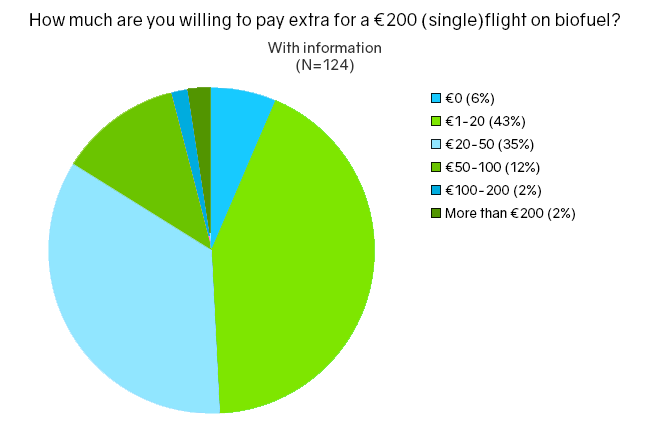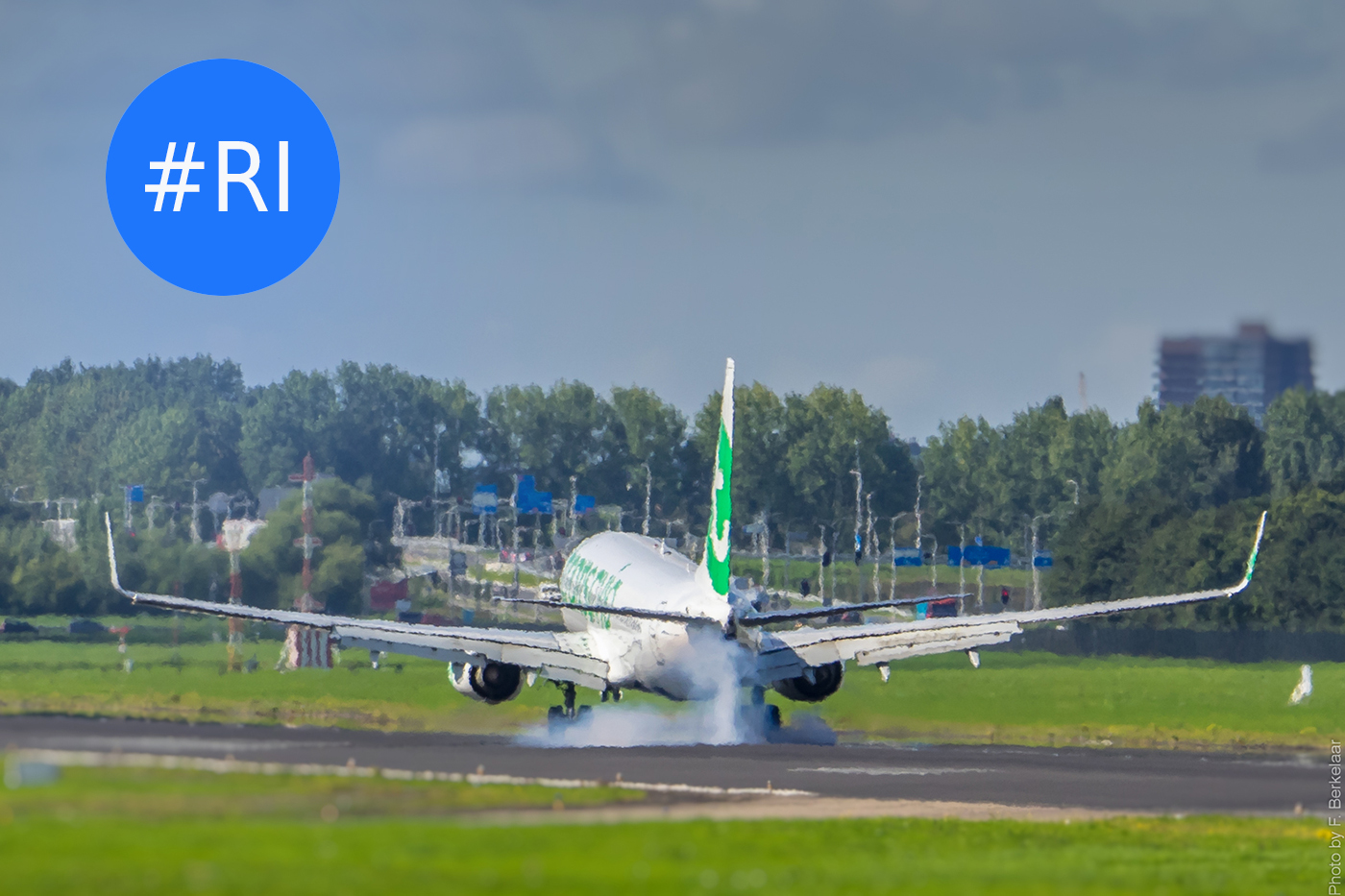At any point in time, there may be up to 10,000 aeroplanes in the air, all spewing out greenhouse gases. Could biofuels address the environmental concerns of air travel?
Successful companies innovate and innovation can bring a lot of good to society, but it may harm as well. The challenge is to innovate in a responsible way: beneficial both to business and society. Last semester, students followed the minor Responsible Innovation and studied ethics in the innovation process. Part of their assignment was to write an article for a general audience. This is part 1 from 4.
During their minor in Responsible Innovation, students Marinde Vos, Nino van der Hooft, Merel Pot, Carmen Grotenhuis, Sinan Kula, and Claudia de Koning and their mentor Barry Fitzgerald investigated how the aviation industry in both in the Netherlands and Brazil is looking at a biofuels future to address environmental concerns.
On 9 October 2018, The Hague Court of Appeal upheld a 2015 ruling by the District Court in The Hague concerning the Urgenda Climate Case in which 886 Dutch citizens held the Dutch government responsible for climate change. In the original ruling, the District Court of The Hague ruled that the Dutch government must cut greenhouse gas (GHG) emissions by at least 25% of 2015 levels by the end of 2020.
Flight tax
Potentially influenced by the Urgenda Climate Case and growing emissions from the aviation industry, on 7 December 2018, the Dutch government announced that a new flight tax of EUR 7 per flight will be introduced from 2021.However, some people contend that such a tax will have negligible effects on GHG emissions and that larger scale changes are required not only by the Netherlands, but by other countries too.
The aviation industry is a massive global industry, teeming with competition, which has led to relatively cheap flights and an increase in the frequency of flights. A 2018 factsheet by the Centre for Sustainability, Tourism and Transport notes that the aviation industry currently accounts for roughly 5% of global climate change, which is predicted to increase to 22% by 2050.
These figures are worrying, with many airlines under pressure from governments and environmental protection organisations to reduce GHG emissions. One approach is to seek new types of fuel that could decrease the carbon footprint of the aviation industry or even lead to a carbon-neutral industry. One such fuel type that could facilitate these goals is biofuel.
What are biofuels?
Biofuels are produced from biomass, the bio-waste materials produced in agriculture, industry, farming, food processing, or human waste. There are four different generations of biofuels, each produced from a different source. First generation biofuels are derived from traditional food crops. Second generation biofuels are made from agricultural residues from food crops, dedicated non-food biofuel crops, or food waste such as cooking oils. Third generation biofuels can be produced from algae while fourth generation biofuels are made from genetically modified feedstocks.
Currently, first and second generation biofuels are the most feasible for the production of biofuels. However, first generation biofuels are controversial given that they rely on food crops and therefore could interfere with food security. Hence, second generation biofuels represents a more responsible approach. Nevertheless, production of these biofuels is dependent on the availability of sufficient viable biomass given that one cannot demand more residues from the food market. Third and fourth generation biofuels would overcome this issue, but both are in development and it will be years before their production becomes widespread.
Aviation market
Today, first and second generation biofuels are widely used in many industries including the aviation industry. Our research has focused on the Dutch aviation market where KLM is the market leader with regard to both the provision of flights and the use of biofuels. In recent years, KLM has used biofuels on several flights including routes between Amsterdam and Oslo, and Amsterdam and Los Angeles (Figure 1). KLM uses sustainable aviation fuels (SAFs) that are derived from used cooking oils and provided by the Amsterdam-based company SkyNRG, a world leader in the supply of SAFs to the aviation industry.

Biofuel motivation
The principal motivation for using SAFs on flights is to reduce the overall carbon footprint of the aviation industry and to establish a sustainable and renewable fuel option for the industry. Currently, the aviation industry uses biodiesels in fuel blends, given that many engines cannot run on 100% biodiesel or do not have a warranty that permits the use of 100% biodiesel. Although it will be hard to use biofuels on every flight, the introduction of blends that include biofuels in the aviation industry is a significant step in the right direction.
As part of our research, we conducted an online survey of the general public to assess if people are willing to pay extra for flights running on biofuels (Figure 2). The results show that only 6% of people would not pay any extra fee if biofuels were used on a flight. This response suggests that people are willing to act on the environmental impact of the aviation industry by supporting the introduction of an alternative fuel source. However, there are a number of ethical issues that must be addressed in relation to the use of biofuels such as land use, farmers’ welfare, the impact of biofuel production on other aspects of society, the identification of reliable and sustainable biomass sources, and food security.

Biofuels in Brazil
Once the KLM has flown biofuel flights in Europe and between Europe and North America, the next goal could be biofuel flights between Brazil and Europe. Brazil is one of the largest biofuel producers in the world, with much of the biofuels derived from sugarcane, sugarcane residues, and soybeans. In a recent paper in the journal Renewable Energy, Patricia Osseweijer and her colleagues at TU Delft considered the techno-economic and GHG emissions associated with SAFs from sugarcane in Brazil. Their research indicates that sugarcane-derived jet fuels could have a positive impact on reducing GHG emissions and primary energy use. Hence, Brazilian airlines may be ideally placed to partner with European airlines such as KLM and initiate sustainable biofuel flights across the Atlantic Ocean. Nevertheless, obstacles to implementation need to be overcome, such as the demands placed on the local sugarcane production industry to governance and regulation issues between countries and the relevant international organisations. As discussed, third and fourth generation biofuels are definitely the future. However, our focus lies on the first and second generation biofuels because action against climate change by the aviation industry cannot wait until it’s too late.
Barry Fitzgerald / lecturer



Comments are closed.